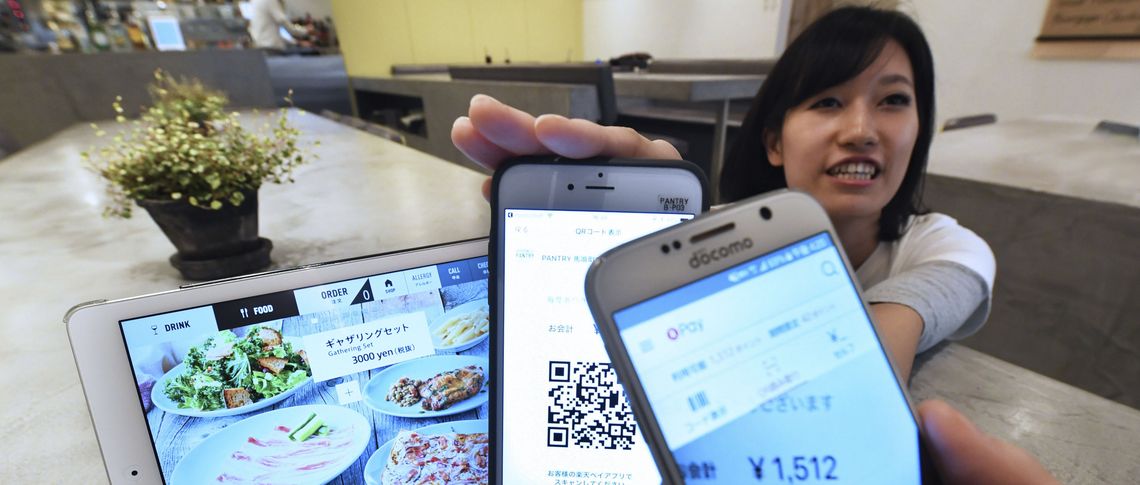Down with cash — or so we’re told. Since the Covid-19 pandemic, the movement away from cash has accelerated. Virtually everywhere, we’re advised to use digital payment systems. In more and more places, we’re even denied other options.
A recent stay in Sweden, where I had to use my (foreign-issued) card, got me thinking. Back home, my bank statement showed multiple fees, totalling several euros. This may seem like a small inconvenience, but it’s a telling one. The starting point is an equity issue: the smaller the purchase, the higher the fees, as on each transaction, a minimum fee applies (plus an amount proportional to the purchase). This leads to a paradox: cheaper goods and services are pricier for those who own standard cards than for those who can afford premium cards (with travel packages) or expensive products.
Indicting Sweden isn’t the point, though. Across the world – from China to India to much of Europe – cash is being eliminated from financial transactions through the expansion of bank cards and digitised systems (QR codes, mobile payment services). This shift towards a cashless economy is no longer just an economic issue, but a human rights one too.
Going cashless
Even where cash payments are still possible, the constant ‘advice’ to use digital systems is starting to feel like pressure. Empowered by arguments around public health (although banknotes pose a low risk of spreading viruses), contactless payments are presented as a must-do. They protect customers and salespeople, we’re told.
Other benefits attributed to digitised payments include the fact that they’re fast, safe and easy, and less prone to use for illegal transactions (drug trafficking, money laundering, tax evasion or undeclared work). Since there’s nothing in the cash register, they also deter robberies. On top of this, proponents of a cashless economy claim that it will reduce costs — from printing notes and producing coins to building ATMs, paying cash-in-transit companies and fighting counterfeit money, as well as transaction costs (time saved).
A final category of arguments revolves around ‘unbanked’ people. Mobile payment services, such as M-PESA in Africa, are said to enable people without access to banks to be more economically active. In that sense, digitising payments would be pro-human rights.
The move to a cashless economy creates exclusion.
Some of these arguments are valuable. And to be sure, in most countries, cashless payments aren’t compulsory. We haven’t witnessed large-scale replacement of notes and coins with digital currency yet: consumers still have a choice, and most keep cash in their wallets. But what about 15 or 25 years from now? From a human rights perspective, could some of the pro-cashless arguments be turned upside down?
Letting cash disappear completely would leave entire categories of people behind from a socioeconomic point of view. Minors. The elderly. The visually impaired. Those who aren’t tech-savvy. Those working in the informal sector. Homeless people, who might be unable to buy food or would require help to do so. Then there are those facing banking restrictions. The list goes on. In short, the move to a cashless economy creates exclusion.
The digital divide (and, in many countries, the gender digital divide) may also widen, especially as many banking apps now require two-factor authentication.
Even more significantly, people who help beggars with a few coins, those who prefer to use cash, want to stay outside oligopolistic markets dominated by a small number of corporations, or simply refuse to own a smartphone or be part of banking systems, will face challenges. And as society becomes increasingly dependent on electronic systems, the risk extends to all of us — what if systems are hacked? What if a cataclysmic event – a solar flare, for instance – disrupts the Earth’s electronic systems?
From a sociological perspective, recourse to cash or the inability to use digital payment systems could become a social marker — even a source of stigma. In some stores, sticking to cash is already met with slightly condescending looks, as if being ‘modern’ means moving to a cashless life.
Key human rights issues
All of these concerns have human rights dimensions, even if they don’t always amount to outright violations — though some clearly do. First, digital payment systems carry the risk of mass surveillance and profiling through the interception of what can be regarded as a form of communication: financial transactions. Left under-regulated, used on a larger scale, these systems will enable undue infringements on the right to privacy. There’s been no consent to such surveillance.
Human rights law is clear about states’ obligation to ensure that adequate safeguards exist to prevent arbitrary interference with the right to privacy. The way data (including digital footprints) is collected, shared, retained and accessed must be strictly regulated. In most social situations, people have a right (subject to limitations on specific grounds) to conceal their identity. With the move to a cashless economy, this right is at risk. All transactions will be visible, and all activities will be traceable; no one will be anonymous.
It will be possible to monitor who attends a protest based, for instance, on the interception of payment transactions in areas around the protest site.
Second, abuses committed in the name of national security are likely. Governments will continue to abuse post-9/11 anti-terrorism laws to target critics and independent voices, or entities they simply view as political threats. In an economy gone completely cashless, it will be tempting to switch those entities off to prevent them from receiving donations or operating.
Third, the right to peaceful assembly will also be threatened. It will be possible to monitor who attends a protest based, for instance, on the interception of payment transactions in areas around the protest site (turning your phone off will be less easy — think of situations where the weather is hot and you need to buy water). Marketing algorithms already rely on consumers’ patterns of behaviour; who knows what fresh hell mass surveillance of digital payments will bring.
Last, the sincerity of public debate might be impacted, with effects on the right to participate in public affairs. Inflation, for instance, might be less easy to track, as cashless transactions are less tangible than banknotes and also lead to more impulsive spending.
This leads to the question of whether a ‘right to access cash’ exists. In Geneva, legislators just passed a law requiring hotels, restaurants and cafés to accept cash payments. This comes as a response to concerns by customers. Many wish to retain the possibility of opting out of digitised payments. The debate is open, and it would be a mistake to consider it closed with the passing of older generations. Beyond digital literacy, thorny questions are on the table. What’s clear is that the human rights movement should start paying attention to them.






